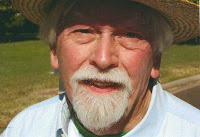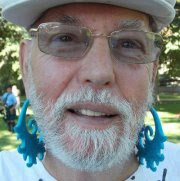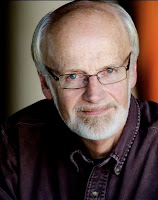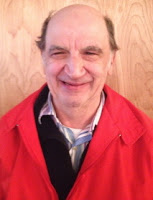As a child and young adult I was spoken to from two pulpits. The one was a Roman Catholic pulpit. The other was an Episcopal pulpit. My father was a Roman Catholic. My mother an Episcopalian. My father Bill hadn’t realized when he asked my mother Anna to marry him that as far as his Roman Catholic church was concerned the only proper marriage was between one Roman Catholic and one Roman Catholic. In other words, a same faith marriage. Nevertheless, the pastor of my father’s Roman Catholic church, Saint Monica’s in Manhattan, consented to marry Bill and Anna–but not before humiliating my Anna in exacting from her a promise to raise her children as Roman Catholics, in effect invalidating her faith. Compounding his sin, the pastor at Saint Monica’s informed Bill and Anna the marriage would have to be held quietly, privately, not in the church sanctuary but in what I must assume was the less holy ground of rectory house next-door, in effect telling Anna she was a touch less worthy. Perhaps even a dangerous. Anna, my mother, a supremely gentle woman, never forgave Saint Monica’s pastor for the insults. Nor have I.
Now this may sound like a real downer, this story I’ve started to tell, the beginning of a relentlessly bitter memoir that might be titled How Faith Fucked Me Up. But there were deeply rewarding ups along with the downs in the years of my growing up in my relationship not only with my father’s Catholic pulpit but also with my mother’s Episcopal pulpit. It’s the rewarding ups I want to tell you about. To do so, though, I need to talk about these pulpits as metaphor but as people–about the men who commanded these two pulpits and who came to represent in my mind contrasting theologies not as hard-ass doctrine but as three-dimensional human beings. And as much as to this day I scorn the pastor of Saint Monica’s, I’m pleased to say in the years of my growing up I eventually found in the two pulpits–the Catholic and the Episcopal–men of every stripe: the compassionate and the cold, virtuosos and sad-sacks, comics and grouches, altruists and narcissists, scholars and fools. The variety alone bolstered my faith, if not in god, then certainly in humanity. It amused me too to see that these men of every stripe sorted themselves pretty much equally between the two pulpits, informing me neither faith was in full possession of the virtuosos and scholars. Nor, for that matter, of the narcissists and fools.
I’m the younger of two boys born to Bill and Anna, and there’s a 14-year spread between my brother and me. Good by her word, my mother permitted my brother and me to be raised as Catholics. When I was born, the family was no longer living in Manhattan–no longer in Saint Monica’s parish. Home when I was born was The Bronx–Pelham Bay–the rabidly Catholic Italian, Irish, and–in my case–dissonant Welsh–northeast corner of The Bronx. My father, my brother and I attended what was for its time a mega-church, populous–a hefty congregation needing six full masses on Sunday mornings–a church with respectable affluence for what was a working-class neighborhood. The church was Our Lady of the Assumption–which, as a kid, I thought was strange. Our Lady of the Assumption? I thought that was like saying Our Lady of Your Guess is as Good as Mine.
In any event, OLA (as it was called) was too big for me to ever get to know any of the priests as people. The Catholic priests I’d meet and learn to admire–to even regard as friends–came along later. While I was a kid going to OLA the priests were all two-dimensional, known to me only by the attributes neighbors would gossip about–such as OLA’s pastor, Monsignor Francis Randolf, the Tippler, sometimes called Randolf the Red-Nosed Pastor, whose rambling Latin on Sundays was sloppy and slurred; and Father Mario Giordano, for whom English must not have been even his third, fifth, or tenth language, the best bet for Saturday confession, we kids knew, because in Father Giordano’s confessional even a confession of genocide would draw as penance only three Hail Marys, one Our Father, and a promise to go forth and do genocide no more.
All the while, my mother was attending Saint Peter’s Episcopal Church, a founded in 1693, a handsome Gothic Revival structure with a piercing copper-plate spire and picture-postcard cemetery, still in use back when I was a kid, but with scores of wafer-thin, leaning Revolutionary War headstones.
Whereas my father and I would shuffle off Sundays to OLA–my brother, a capable right-fielder, had already exchange Sunday morning worship for city-league baseball–while my father and I would shuffle off half-heartedly to OLA, my mother would be worshipping with comparative sincerity at Saint Peter’s. My mother, unlike my father, really believed. I didn’t know back then if there was such a thing as real faith, but if there was, my mother had it in spades. She never proselytized; hers was a quiet faith. And the depth of this faith led my mother into all sort of available involvements at Saint Peter’s–the choir, the altar society, the food bank. I can still see her at the Smith Corona typing up mimeograph stencils for the Sunday bulletin.
These volunteer activities in turn led to her making a great friend of Saint Peter’s rector, Father Jeremy Brown. Father Brown was my mother’s idea of a priest–warm, kindly, charismatic–the sort if you’d ask Central Casting to send over a lovable priest, they send Jeremy Brown. Brown would have dinner with us. In Brown, I met my first fully human cleric. It was Father Brown who told me, to satisfy my curiosity, it would be safe for me to go along with my mother to an Episcopal service–which I did, nervously, fearful the next time I stepped into Our Lady of the Assumption I would explode in flame.
When I was in my late teens my father lost the only job I’d ever known him to have, a foreman in a lower Manhattan factory. To help until my father could find another permanent job, Rector Brown invited my father to work in Saint Peter’s ancient cemetery. Although it paid modestly–for which my father was grateful–the work was tough, not just physically but emotionally–graves were still dug by hand at St. Peter’s, and, as my father learned, digging adjacent graves often made for disturbing discoveries.
When it became obvious this work was taking a damaging toll on my father, Rector Brown reached across the aisle–or I could say nave–to a Jesuit friend at Fordham University–Fordham University, a great concentration of Catholism. Brown secured for my mother a part-time typist’s job in Fordham’s philosophy department. Again my mother drilled down, volunteering, doing far more than what was expected of her, and in doing so, endeared herself to the Jesuit faculty. It was only a matter of time now before we had Jesuits at our dinner table. Jesuit philosophers no less–occasions which, for my mother with her finishing school certificate and my father, a high school drop-out, made for challenging suppertime conversation.
The youngest of the Jesuit philosophers was Jack Balog. Father Jack wasn’t much older than me, or so it seemed. He and I became great pal-around friends. At my age I would have to reach way up to hold my own in conversation with Father Jack, but fortunately, because his own Jesuit training was still fresh, Father Jack had only to reach a little ways down so as not to embarrass me. Father Jack and I did typical guy things–concerts, movies, bowling, always ending our evenings at the Steak & Brew near campus. A couple of beers and Jack was honest even about his concerns about celibacy. A couple of beers and I was undeterred in my dishonesty about my sexuality. Retired today, Jack lives on a university campus in Eastern Pennsylvania. I’m out now to Jack. We’re still friends.
But the fellow I want mostly to tell you about is Father George Maloney. Father Maloney–or Father George as we all called him–was the chair of the Philosophy Department. Father George was easily two decades older than me, so an uncle figure. He was also a man whose IQ dazzled but without a hint of pretention. Father George’s specialty was Eastern Orthodoxy, a subject on which he authored quite literally two or three dozen books (many of which I have, warmly inscribed, on my bookshelf today). Unlike my pal Father Jack, though, Father George, Father Jack’s boss at Fordham, was an austere man, in appearance as well as in character. A lifetime of extraordinary self-discipline, strict vegetarianism, and long, long-distance cycling had give Father George, from a distance, rail-thin and with a wild salt & pepper beard, a somewhat disquieting look. It was only when you got up close, across our dinner table for instance, you could see how his eyes said you’ve no reason to be keep away. Nonetheless, unlike Father Jack, I would never have called Father George a pal-around friend. Our relationship was and remained mentor and pupil.
I’ll close with a snapshot of Father George, one of many years later. Father George remained at Fordham as chair of the Philosophy Department. I went off to college, got my B.A. in ’66, then went into the Army (having screwed up and taken R.O.T.C.–another story for another Monday), got discharged in ’70, worked for a newspaper in New Jersey for a few months, quit, discovered Colorado and snagged my M.A. at Western State in Gunnison, went back to New York for a year to help pout as my father slowly disappeared into dementia. I then returned to Colorado–this time to Denver and D.U. It was at D.U. that I met Jim, the young man who would be my partner for a decade. To collapse the tale, after a year Jim and I lost interest in D.U. We settled into an apartment in Capitol Hill and tried to keep it together working as waiters in a number of disappointing restaurants around Denver. Discouraged, I suggested we try our luck in my hometown, New York. Arriving, already nervous about the visibility of a love that dare not speak its name, Jim and I found it too, too uncomfortable living with my mother. Father George, though, over for dinner, spotted our distress and asked if we would like to come live at no cost, albeit temporarily until we could a place of our own, with the Jesuits on the Fordham campus. All of a sudden Jim and I were thinking this love that dare not speak its name–if we were to move into a Jesuit dorm–this love might just start hollering in the hallways. Anyway, Jim and I met with Father George. “I know what your concerned about,” Father George said. “Don’t be. The way I see it, God loves all love.”
And so Jim and I moved in with the Jesuits. We found ourselves in a four-story dorm full of Jesuits, mostly philosophers, many from Eastern Europe and the Orient with absolutely no English. Ours was an incredible experience, living in the Jesuit dorm–but that brings me to the threshold of another story, another story for another Monday.
Father George Maloney lived a good, long life, retiring not all that many years ago to a monastery in Southern California. I would phone every three, four months and we would chat. I never did get out there to see Father George, although I had the best of intentions. Then, last year, I phoned to learn that Father George, at 96, had died.
I grew up with two pulpits. Today I have none. I’m not sure if I’m any the worse off for that. I am sure, however, I’m grateful for the two pulpits–the Catholic and the Eposcopal–I had in my childhood and young adult years, not for pulpits themselves but for the lifelong friends they released into my company.
About the Author
Colin Dale couldn’t be happier to be involved again at the Center. Nearly three decades ago, Colin was both a volunteer and board member with the old Gay and Lesbian Community Center. Then and since he has been an actor and director in Colorado regional theatre. Old enough to report his many stage roles as “countless,” Colin lists among his favorite Sir Bonington in The Doctor’s Dilemma at Germinal Stage, George in Who’s Afraid of Virginia Woolf? and Colonel Kincaid in The Oldest Living Graduate, both at RiverTree Theatre, Ralph Nickleby in The Life and Adventures of Nicholas Nickleby with Compass Theatre, and most recently, Grandfather in Ragtime at the Arvada Center. For the past 17 years, Colin worked as an actor and administrator with Boulder’s Colorado Shakespeare Festival. Largely retired from acting, Colin has shifted his creative energies to writing–plays, travel, and memoir.











